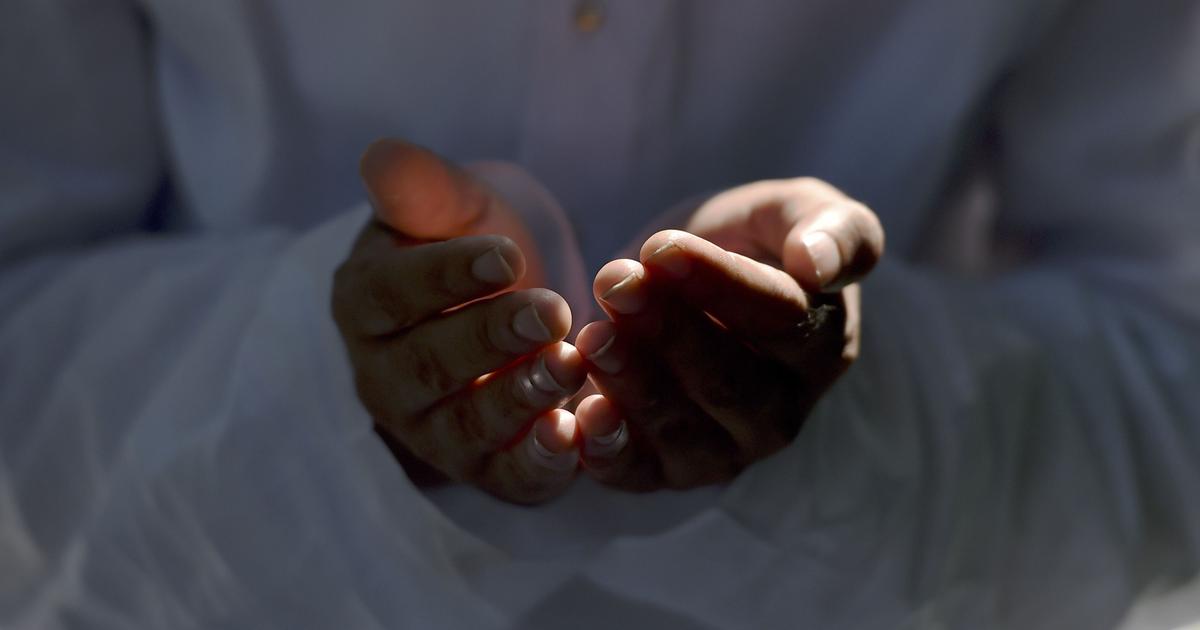By: Firdous Ahmad Malik
Shab-e-Barat, known as the “Night of Forgiveness,” is observed on the 15th night of Sha’ban, the eighth month of the Islamic lunar calendar. This night holds great spiritual significance for Muslims around the world, as it is believed that Allah (God) descends to the heavens and offers His mercy and forgiveness to all who sincerely repent. It is a time when the fate of individuals for the coming year is said to be written, making it an ideal occasion for seeking divine blessings, guidance, and forgiveness.
On Shab-e-Barat, Muslims engage in special prayers, seek spiritual reflection, and offer charity. The night encourages believers to purify their hearts, strengthen their faith, and connect deeply with both Allah and the global Muslim community. It serves as a reminder of the importance of repentance, unity, and hope.
Shab-e-Barat, also known as the “Night of Forgiveness,” has its roots in Islamic tradition, although the exact historical events associated with it are not unanimously agreed upon by scholars, it is, however, observed on the 15th night of Sha’ban, the eighth month of the Islamic lunar calendar, which falls just before the beginning of the blessed month of Ramadan. Various Hadiths mention the significance of this night, with the belief that Allah descends to the lowest heavens and offers His mercy and forgiveness to all who sincerely repent. The Prophet Muhammad (PBUH) is reported to have spoken about the importance of seeking Allah’s pardon on this night, urging Muslims to engage in prayers and reflection.
It is also considered a night when the destinies of individuals for the coming year are written. While some scholars debate the authenticity of this belief, it is widely accepted that the night holds great spiritual significance. It is a time for Muslims to cleanse their hearts, seek forgiveness for past mistakes, and make supplications for the future. The tradition of visiting graves and offering charity is also rooted in the historical observance of this night, as Muslims aim to honor both the living and the deceased during this sacred time.
It is a night of immense spiritual significance for Muslims, offering a unique opportunity for reflection, repentance, and renewal of faith. It is believed that on this night, Allah’s mercy is abundantly available, and those who turn to Him with sincere hearts can receive forgiveness for their sins. The Prophet Muhammad (PBUH) emphasized the importance of seeking Allah’s pardon on this night, with many Muslims dedicating themselves to extra prayers, supplications, and acts of worship. It is a time when believers believe their past year’s deeds are reviewed, and they seek Allah’s guidance for the future.
The spiritual importance of this night extends beyond individual reflection. It fosters a sense of communal unity, as Muslims across the world join in prayer and remembrance. The night serves as a reminder to purify one’s heart, strengthen ties with Allah, and engage in acts of kindness and charity. Through these practices, Muslims reaffirm their commitment to righteousness, seeking divine light and mercy during a time of spiritual renewal.
Shab-e-Barat is widely regarded as a night when Allah’s divine forgiveness and mercy are abundantly available to all who seek it. According to Islamic tradition, Allah descends to the lowest heavens on this night, asking if anyone seeks forgiveness, healing, or mercy. It is a time when Muslims believe their sins, whether major or minor, can be forgiven through sincere repentance. The Prophet Muhammad (PBUH) encouraged believers to use this sacred night to reflect on their past actions and seek Allah’s forgiveness with a humble heart, assuring them that no sin is too great to be pardoned if one sincerely turns to Allah.
This night is not only about personal redemption but also about Allah’s boundless mercy. Muslims believe that Shab-e-Barat offers a rare chance for spiritual transformation. The mercy extended on this night encourages believers to renew their faith, make amends in their relationships, and strive to live more righteously. It serves as a reminder that Allah’s compassion is infinite, and His doors of mercy are always open for those who seek it with sincerity.
On Shab-e-Barat, Muslims engage in various acts of worship to seek Allah’s forgiveness and mercy. The night is often spent in prayer, with many offering extra units of prayer (Nafl), particularly the Tahajjud prayer, which is performed after midnight. This is considered one of the most powerful forms of worship, as it allows believers to make personal supplications and seek closeness to Allah. Muslims also recite Quranic verses and engage in heartfelt du’a (supplications), asking for forgiveness, guidance, and protection in the coming year.
In addition to prayer, another key act of worship on Shab-e-Barat is visiting the graves of deceased loved ones. Muslims believe that prayers for the dead are especially beneficial on this night, helping them attain peace and mercy. Charity is also highly encouraged during this time, as giving to those in need is seen as an act of spiritual purification. Through these acts, believers strive to strengthen their faith, seek forgiveness, and experience a renewed sense of spiritual connection.
On Shab-e-Barat, prayer holds a central role as Muslims seek to draw closer to Allah and earn His forgiveness. The night is often spent in prayer, particularly the Tahajjud prayer, a voluntary night prayer highly recommended for this occasion. Muslims believe that during this time, Allah is especially merciful and listens to the supplications of His servants. Many also recite specific chapters of the Quran and ask for forgiveness for their sins, making sincere vows to improve their lives and strengthen their faith. Through these prayers, believers focus on seeking Allah’s guidance, mercy, and protection for the future.
Reflection is equally important on Shab-e-Barat, as Muslims take time to contemplate their actions over the past year. This night provides a spiritual reset, allowing individuals to cleanse their hearts from past wrongdoings. Believers reflect on their relationships with Allah, their family, and their community, and renew their commitment to living a righteous life. Through deep reflection and prayer, Shab-e-Barat serves as an opportunity for spiritual growth and transformation.
Shab-e-Barat not only holds personal significance but also fosters a sense of unity within the Muslim Ummah. Muslims around the world observe this night with collective prayers, supplications, and acts of worship, creating a shared spiritual experience. This global connection reminds believers that they are part of a larger community bound together by faith. Whether through prayer or acts of charity, Muslims across borders come together, united in seeking Allah’s forgiveness and mercy.
The night also provides an opportunity to strengthen bonds with the broader Muslim community. Many Muslims visit the graves of their loved ones, offering prayers for the deceased, which serves as a reminder of the importance of family and community in Islam. Acts of charity during this night further promote solidarity, as helping those in need reinforces the values of compassion and mutual support. Shab-e-Barat thus not only brings individuals closer to Allah but also to each other, fostering unity and brotherhood within the Ummah.
Shab-e-Barat represents a night of spiritual light amidst the darkness of life’s challenges. For Muslims, the night is seen as an opportunity to turn toward Allah with hope, seeking His mercy, forgiveness, and guidance. It is a time when individuals reflect on their past actions and ask for Allah’s help in overcoming the difficulties they face, whether personal or communal. The night offers a powerful reminder that even in times of hardship, there is always a chance for renewal and divine grace.
The symbolic light of Shab-e-Barat brings a sense of hope and spiritual clarity, encouraging believers to leave behind past mistakes and embrace a fresh start. As Muslims seek forgiveness for their sins, they believe that their hearts are cleansed, and their future is brightened with Allah’s blessings. This night serves as a reminder that through repentance and faith, even the darkest times can be illuminated with the light of divine mercy and love.
Conclusion
Shab-e-Barat serves as a profound reminder of the importance of forgiveness and unity, values that resonate deeply within the Muslim Ummah. On this night, Muslims worldwide seek to cleanse their hearts, ask for Allah’s mercy, and renew their commitment to faith. For the youth, particularly those in challenging environments like Kashmir, Shab-e-Barat offers a moment of reflection and hope. Amidst ongoing struggles, it encourages young people to embrace forgiveness, let go of past grievances, and work toward unity within their communities. By focusing on spiritual growth and compassion, the youth can play a pivotal role in bringing about change.
In Kashmir, a region often marred by conflict and division, Shab-e-Barat stands as a beacon of hope and a call for unity. This sacred night encourages individuals, especially the youth, to rise above divisions and work towards peace and collective well-being. As the Muslim Ummah comes together in prayer and reflection, Shab-e-Barat can inspire a new generation to foster love, understanding, and unity, both locally and globally.
The writer is Pursuing M.ed at the University of Kashmir
artistmalik61@gmail.com




